
Fjaðrárgljúfur Canyon, Iceland [OC] [4032x3024] EarthPorn
Located is South Iceland, Fjadrargljufur (or Fjadra Canyon) is a 100 m deep and about 2 kilometres long serpentine canyon with the Fjaðrá river flowing through it. Its Icelandic spelling is Fjaðrárgljúfur. It is a favorite for photographers because of the magnificent work of erosion by the river. Fjadrargljufur canyon, Iceland
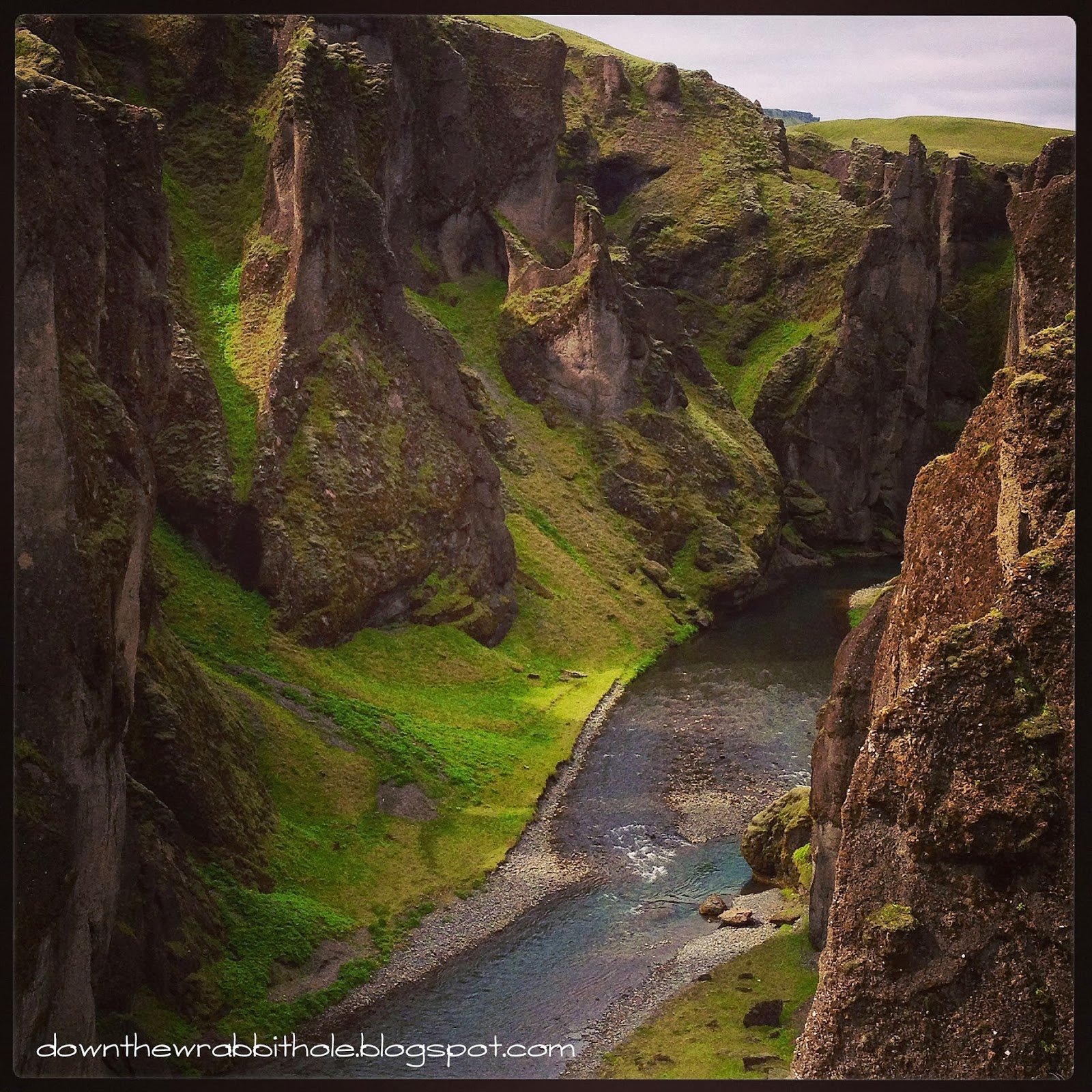
The Majestic Fjaðrárgljúfur Canyon of Southern Iceland
Fjaðrárgljúfur Canyon is located in the southeast part of Iceland, just off the famous Ring Road. It is estimated that this canyon was formed at the end of the last Ice Age, about 9,000 years ago, through glacial erosion. But it is worth noting that the bedrock itself is thought to be about two million years old. Today, the river Fjaðrá flows through it and its picturesque Mögárfoss.

Fjadrargljufur canyon and river in south east iceland stock photo containing Nature Stock
Fjaðrárgljúfur canyon is a stunning natural wonder located in southern Iceland. The canyon is approximately 2 kilometers long and over 100 meters deep, with a river running through the bottom of it, making it a truly awe-inspiring sight to behold.

Fjadrargljufur canyon Iceland's epic canyon Iceland Unlimited
Fjadrargljufur ( Fjaðrárgljúfur) is a deep and narrow canyon located in the south-eastern part of Iceland. Like most natural gorges, this canyon was formed by the erosion of flowing water from melting glaciers and is characterized by steep, green moss-covered cliffs and a winding river at the bottom.

Fjaðrárgljúfur canyon, Iceland [3000 x 4000] NATUREFULLY
Welcome to Fjaðrárgljúfur, a canyon that makes even the hardest to spell Icelandic names worth memorizing. This majestic site, with its dramatic cliffs and winding river, feels like stepping into a dreamy painting. Uniquely carved by nature over millions of years, Fjaðrárgljúfur Canyon is a testament to the persistent power of water over rock.
Fjaðrárgljúfur Canyon in southern Iceland (OC) [3456x5184] r/EarthPorn
Fjaðrárgljúfur Canyon is located in the southeast part of Iceland, just off the famous Ring Road. It is estimated that this canyon was formed at the end of the last Ice Age, about 9,000 years ago, through glacial erosion. But it is worth noting that the bedrock itself is thought to be about two million years old.
fjaðrárgljúfur canyon, Iceland [2448 × 3264][OC] r/EarthPorn
Fjaðrárgljúfur is a magnificent and massive canyon, about 100 meters deep and about two kilometers long. The canyon has sheer walls and is somewhat serpentine and narrow. The bedrock in Fjaðrárgljúfur is mostly palagonite from cold periods of the Ice Age and is thought to be about two million years old.

The Picturesque Fjaðrárgljúfur Canyon in SouthIceland
Fjaðrárgljúfur is a beautiful, dramatic canyon in South Iceland, close to the historic town of Kirkjubæjarklaustur. Explore a wide range of South Coast tours and self drive packages. Fjaðrárgljúfur is little known and is thus far less crowded than other sites in the area, such as Skaftafell nature reserve, and Jökulsárlón glacier lagoon.

Fjaðrárgljúfur Canyon in Iceland Arctic Adventures
Fjadrargljufur canyon is situated in the South East of Iceland. It is part of the expansive Katla Geopark, recognized by UNESCO as a site of great geological importance. Katla Geopark is an immense area, coming in at nearly 1000 square kilometers! The best way to get to the canyon is to rent a car.

Fjaðrárgljúfur Canyon Iceland [OC] [5366x3976] http//ift.tt/2GfxftM Cool places to visit
Fjadrargljufur (or Fjadra Canyon), is a 100 m deep canyon in Southern Iceland. Over the years, the Fjaðrá river has carved a winding path into the rocks with stunningly steep walls and beautiful waterfalls. Start the Fjaðrárgljúfur Canyon Hike at the parking lot just before the bridge on 206 Holtvegur.
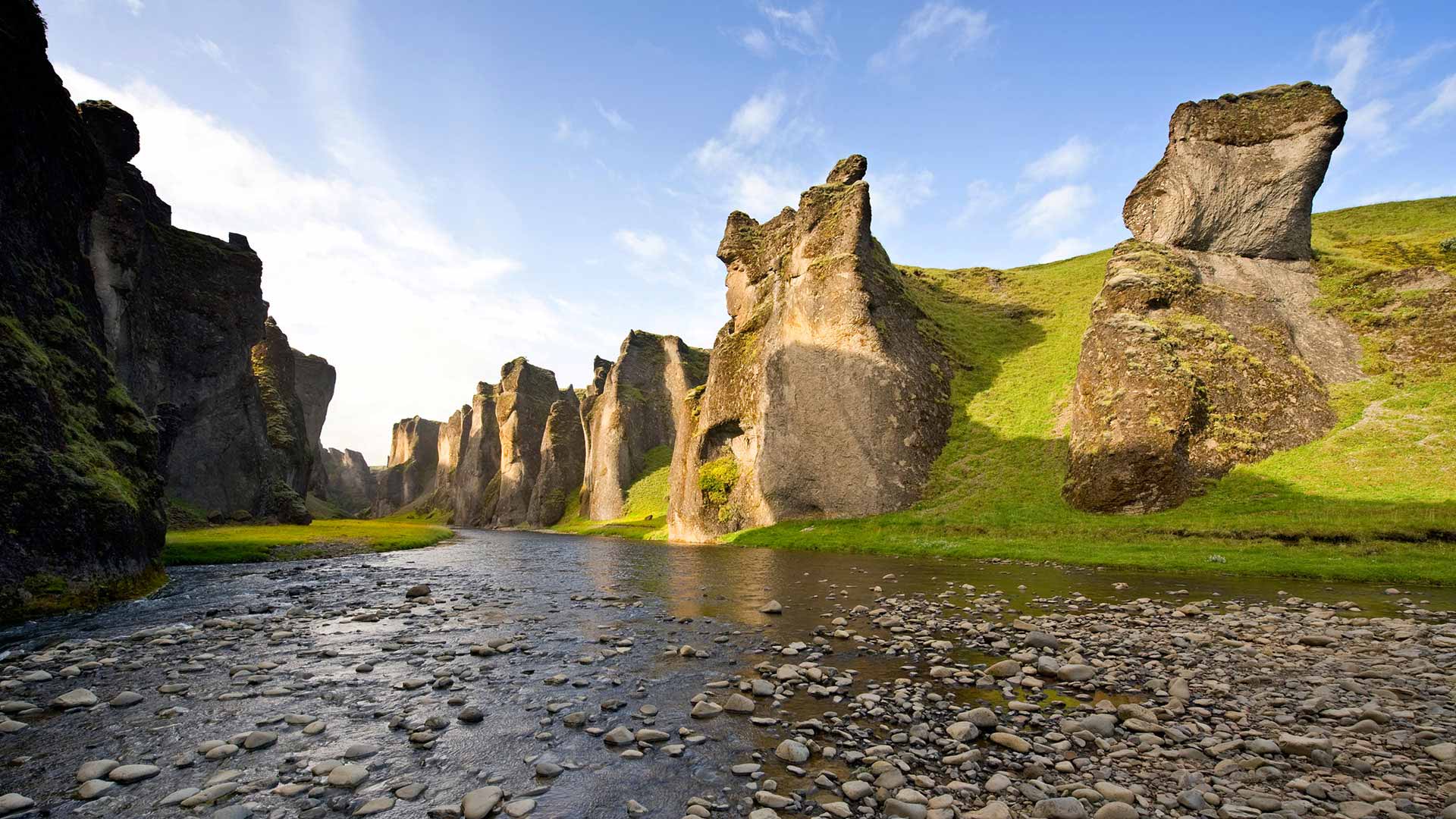
Fjaðrárgljúfur canyon South Iceland Travel Guide Nordic Visitor
Fjadrargljufur Canyon 4.5 888 reviews #1 of 19 things to do in Kirkjubaejarklaustur Nature & Wildlife AreasCanyons Write a review About The spectacular moss-covered canyon was carved out of palagonite rock by a glacial river over thousands of years, and is located in south Iceland just off the Ring Road between Vik and Skatafell.

Aerial view of a riverbed in Fjaðrárgljúfur canyon, Iceland Windows 10 SpotLight Images
Fjaðrárgljúfur canyon was created by progressive erosion by flowing water from glaciers through the rocks over a long period of time, some say 9000 years ago. Its not difficult to get there because its not far away from the main ring road and the gravel road that leads you up there is in good condition.

The Fjaðrárgljúfur Canyon, Iceland Island wallpaper, Beautiful photos of nature, Earth pictures
Jump to chapter How Fjaðrárgljúfur was created Iceland has got some spectacular canyons, one of which is Fjaðrárgljúfur canyon in South-Iceland. Fjaðrárgljúfur is a canyon with quite a unique serpent-like shape and it was not well-known to visitors to Iceland until a few years ago.

Fjaðrárgljúfur canyon, Iceland Iceland travel, Travel inspiration, Places to visit
Fjaðrárgljúfur Canyon is an ancient palagonite canyon that carves a path through Skaftárhreppur in the southeast of Iceland. This impressive 100-metre-deep canyon stretches for 2km with the Fjaðrá River flowing at the base of the sheer moss-covered rock walls.
Fjaðrárgljúfur, a canyon in Iceland; there's a path leading right down to the bottom r/travel
Fjadrargljufur is a stunning canyon close to Kirkjubæjarklaustur in South East of Iceland. It was the location of Justin Bieber's video "I'll Show you." All Tours Operating Normally. Experience Iceland Safely: Current Volcanic Eruption Updates Here. Language:English Chinese Currency:USD ISK USD EUR CAD GBP My Wish List(0) Blog About Us
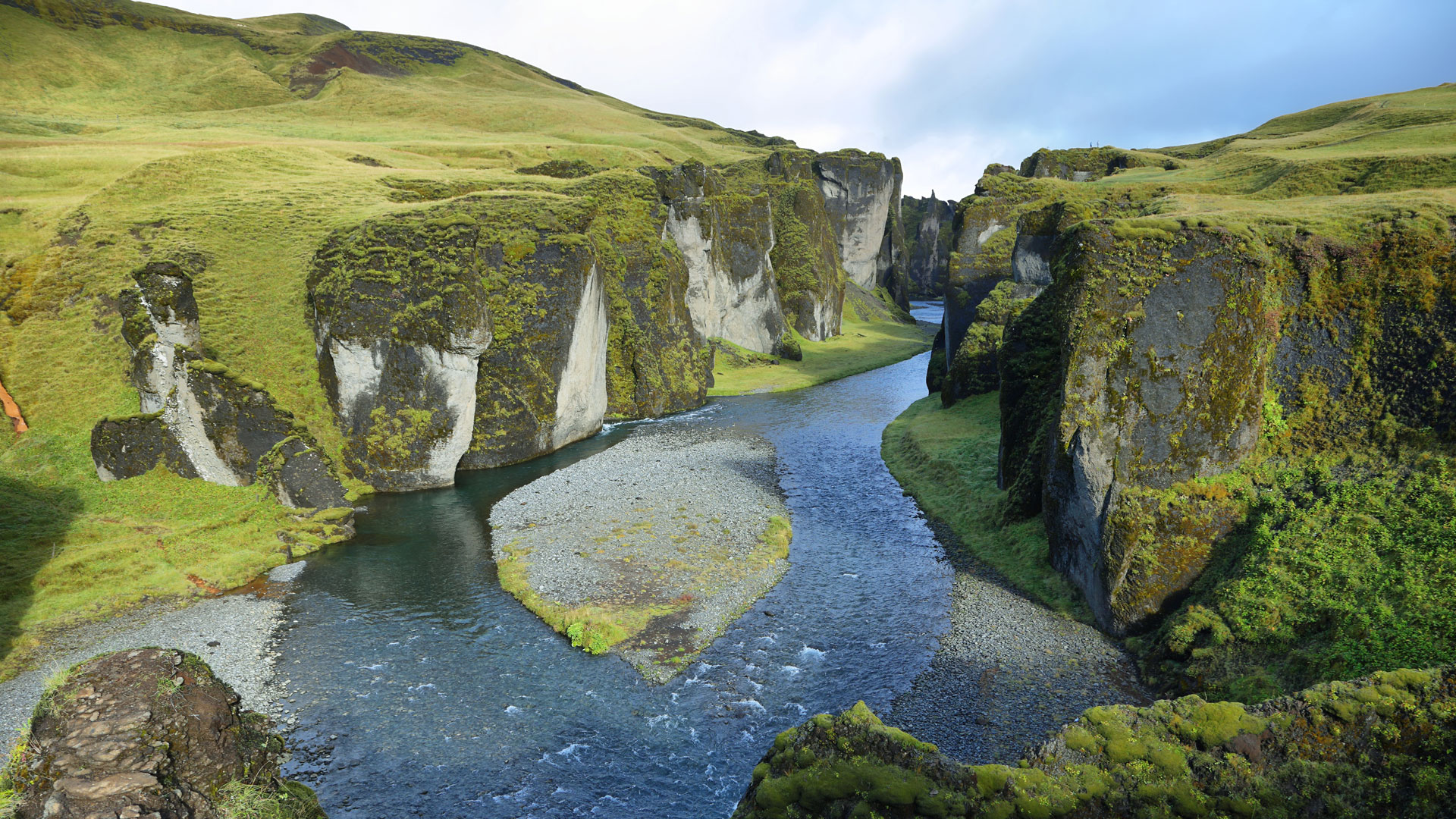
Fjadrargljufur canyon A Complete Guide Play Iceland
Fjaðrárgljúfur ( pronounced [ˈfjaðrˌaurˌkljuː (v)ʏr̥], "feather river canyon") is a canyon in south east Iceland. The Fjaðrá river flows through it. The canyon has steep walls and winding water. It is up to 100 m (330 ft) deep [1] and about 2 kilometres (1.2 miles) long. [2]